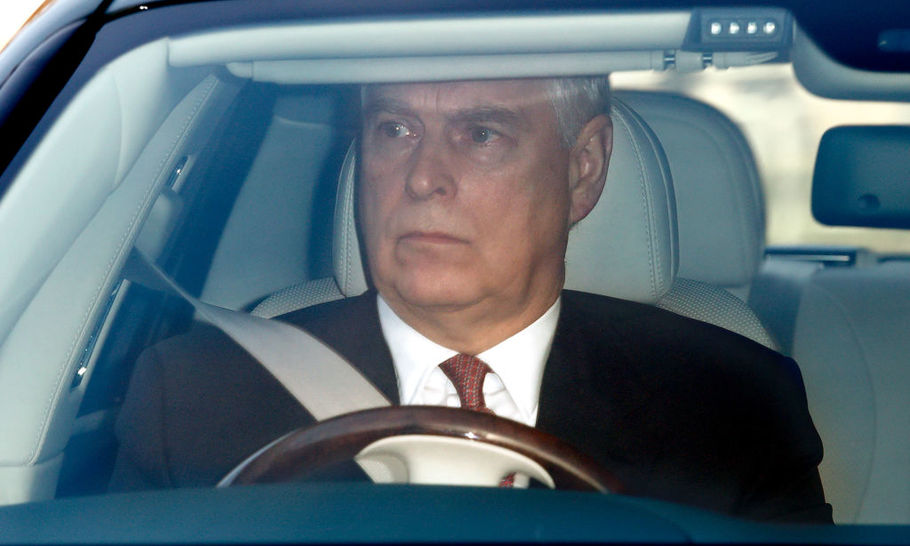Nine major media moments from 2019

(Max Mumby/Indigo/Getty Images)
From fake news to twitter storms, the media has dominated events in 2019. TheArticle’s media editor, Charlotte Henry, picks her top moments from a tumultuous 12 months.
The streaming wars heat up
If media in 2019 was about anything, it was about streaming. Apple TV+ arrived and its flagship programme, The Morning Show, attracted a lot of attention, if not rave reviews. The BBC/ITV tie-up BritBox came to the UK too. Disney+ went live in the United States and will be heading across the Atlantic in 2020. We also had Amazon Prime Video’s first foray into football, broadcasting two rounds of live Premier League games during December. Frankly, if you didn’t launch a streaming service during the year, what did you do?
The exit poll
10pm on election night is always a dramatic moment. As the polling stations close, the television stations deliver their exit poll. As the clock stuck the allotted hour on December 12, we learned that the Conservatives were set to win a significant victory, despite weeks of commentary suggesting the race for Downing Street had tightened. Not long after that, Blyth Valley elected its first ever Conservative MP, suggesting the poll was right and that Boris Johnson was indeed set for a “stonking majority”. The emotion on the face of the newly-elected MP Ian Levy was clear to see. Labour figures turned increasingly pale as the night went on.
Fleabag season two gets us all turning up at church
2019 was the year Phoebe Waller-Bridge, the genius who wrote and starred in Fleabag, went global. In April, before winning countless awards and being drafted in to save James Bond, series two of the BBC series was released. Not only is it a stunning piece of black comedy, it brought the sexy Priest (Andrew Scott) to the world.
Daily Mail and General Trust buys the i
In November, the publisher of the Daily Mail, the Daily Mail and General Trust, purchased the i newspaper. The development was largely only noticed by media nerds and industry watchers. The £49.6 million deal caused some hand-wringing from the i’s mostly liberal and independent-minded readers, but it also showed that there may still be some hope for strong print brands that offer good reporting.
The Missing Cryptoqueen reminds us of the power of podcasts
In 2014, Season 1 of the Serial podcast caused a storm. It showed that podcasts could be used for serious investigative journalism and longform storytelling. In 2019, Jamie Bartlett and producer Georgia Catt got as close as anyone to recreating that kind of phenomenon. They travelled around the world to tell the story of Dr Ruja, who claimed that her OneCoin venture was the start of a major new cryptocurrency, before mysteriously disappearing. This impeccably made podcast had everybody hooked.
Prince Andrew gets in a sweat
It was the interview everyone wanted, but only Emily Maitlis and her Newsnight colleagues could pull off. Maitlis sat down with Prince Andrew, the Duke of York, and grilled him about his relationship with convicted sex trafficker Jeffrey Epstein. It didn’t go well for Andrew. A jaw-dropping encounter with a number of standout moments, the conversation left people shocked at his arrogance, and resulted in him standing down from public duties.
The Champions League semi-finals
Liverpool and Tottenham looked dead and buried as they prepared for the second legs of their Champions League semi-finals. Liverpool, three-nil down from the first leg against the mighty Barcelona, conjured up one of their magical Anfield nights, scoring four goals, including one from an impudent, quickly-taken corner by Trent Alexander-Arnold. At half time the next day, Tottenham, in their return fixture against Ajax in Amsterdam, found themselves behind by the same score line. A goal shortly after the break, gave them hope. Another took them agonisingly close to the final. With moments to go, Brazilian attacker Lucas Moura slotted the winning goal. Cue pandemonium, including in the BT Sport studio, where the pundits could not believe what they were seeing. In the year of on-demand streaming, two nights of unimaginable tension reminded us that the greatest drama is still delivered live.
England win the Cricket World Cup live on Channel 4
The summer’s sporting drama did not end with the football season. Ben Stokes, who earlier in the year had been found not guilty of affray, was still to take centre stage. England, desperate to win a home cricket World Cup, were close to blowing the final against New Zealand at Lord’s. Stokes refused to give up, and at the crucial moment, a freak overthrow from a New Zealand fielder ricocheted off Stokes’s bat and went to the boundary. The scores were tied.
The contest would be decided by a single “super over”. England, with Stokes again at the crease, set their score. New Zealand, chasing it down, got to their final ball. It was hit out to fielder Joe Denley. He threw to Buttler. A run out. The scores were tied again — but having hit more boundaries, England were the winners.
And it was live on free-to-air television for the first time in 14 years, inspiring a generation of new cricket fans, thanks to that “Champagne Super Over”. Stokes’s performance was amazing. Even more amazing was that he repeated the miracle in the Ashes test at Headingley just a few weeks later.
It’s…. Rebekah Vardy
The line between social media and traditional media is increasingly blurred, and nothing showed that better than a bust up between two high-profile footballers’ wives. Thanks to a stunning piece of detective work, Coleen Rooney, wife of former England star Wayne, claimed that she had caught Rebekah Vardy, wife of Leicester City striker Jamie, leaking private stories about her to the tabloids. She delivered the news to her followers in a manner that should inspire scriptwriters everywhere. In a year dominated by Brexit and elections, “Wagatha Christie” was the meme we all needed.





